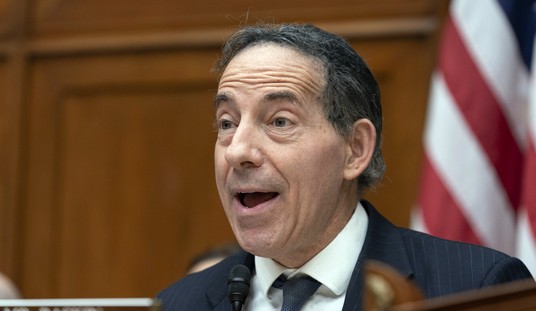Every time I’ve gotten into a written or verbal discussion about minimum wage laws (or the relatively new crusade for a “living wage,” which is another exercise of compulsive power beyond what the law requires, premised on the idea that business owners who obey the minimum wage laws are nonetheless greedy villains) someone objects that people “deserve” so much better than the paltry whatever-dollars-per-hour, and nobody could possibly “live” on it. I insert a placeholder for the dollar amount because it’s an argument I’ve been hearing throughout my entire life. The wage changes over time, but the argument doesn’t.
It’s not easy to explain that raising the price of labor does not automatically increase its value. A law that requires payment of $10 per hour to ever brand-new, inexperienced, unproven worker does not suddenly make them worth $10 per hour. Of course, it costs business a lot more than ten bucks an hour to hire the employee, a concept that is surprisingly difficult to explain to people who have never issued a payroll check. The mandatory costs of employment create a vast and largely invisible burden that has the cultural effect of making employers seem more miserly than they actually are, which in turn becomes one of the reasons people have such enduring faith in the wonders of government “job creation.” The minimum wage is so low – why aren’t those heartless companies hiring more people?
I used to teach classes in using computer software to cut payroll checks. The moment when a young student realized just how much his or her employer actually pays for each hour of labor was always delightful to behold. How much more independent would we be if a greater measure of that salary was put in our hands to be spent and saved as we see fit? How much more would we appreciate the hideous weight of government if we had to cut quarterly checks to remit our taxes?
I don’t recall being quite as blunt as blogger Matt Walsh, in a post entitled “Some people don’t deserve a living wage.” He takes great issue with this business of “deserving” wages, employment, and other benefits, which he notes is very different from earning those things. I would add that the concept of entitlement also defuses the positive effects of charity, as it is understood among private citizens. Our society would not idly stand by and watch people starve because they cannot find work, but that’s a far cry from today’s gigantic Food Stamp Nation, which extends far beyond those who are in danger of starving, and teaches them to regard their benefits as entitled property rather than Christian charity.
Walsh was inspired to write by an encounter with a most uninspiring pair of young “job seekers,” who rolled up to the customer service desk of a retail store, mumbled “Y’all got applications? Y’all hiring?” and then trudged out with a sigh of “Oh, sucks, alright” when the answer was negative. Walsh was beside himself after witnessing this spectacle:
Now, I’m pretty sure this place, like every big chain retailer these days, has their applications online. I’m also pretty sure that they, like every big chain retailer, are always hiring. I’m positive they’re hiring in early November, right at the beginning of the Christmas season. I’m positive that I could have come up right after them, looked the woman in the eye, spoke clearly and politely and said, “Yes, hello, how are you? My name is Matt Walsh. I’m very interested in any job opportunities that might be available here. Could I possibly speak to a manager if they aren’t busy? If they are, could I fill out an application and leave it here with you, please?”
I guarantee the woman would have either handed me an application, directed me to the website, sent me to a kiosk to fill one out, or even called the manager. I guarantee that, magically, they would have gone from “not hiring” to “hiring” in the span of 90 seconds. Do you know why? Because I’d present the image of someone who is worthy of a job. The guys before me presented the image of people who aren’t worthy of mopping the bathroom floors.
The guys before me put precisely 0.0 percent effort into their “job hunt.” And this is an extremely common problem. Ask anyone who works at a customer service desk, or any manager at an establishment that commonly attracts job searchers in my age demographic or younger.
When I was managing the support department at a prosperous young computer company, I once ran afoul of a guy who showed up for a job interview wearing a half-unbuttoned beach-bum shirt, board shorts, and flip flops. I suspect a book could easily be filled with such anecdotes.
One of the things that jumped out at me from Walsh’s account was his supposition that those half-hearted young men chalked the experience up as another inexplicable setback in their “job hunt,” and were probably complaining about the crappy job market and groaning “nobody’s hiring” by the end of the day. If they’re lucky, they might earn a few bucks for appearing as models in a new “brosurance” ObamaCare advertisement. They’ll need one more guy to do a proper keg stand.
A truly healthy job market would find a place for people like this, by inspiring them to behave differently. Remember that the concept of a “job market” includes both buyers and sellers. The quality of the wares for sale is important. Those who speak constantly of what everyone “deserves” fail to appreciate that employment is a form of commerce, not a social program designed to give people handfuls of cash and somewhere they can kill eight hours a day.
What we need is not a minimum wage (although the concept is hard-wired into our culture now) and certainly not a “living wage,” but a working wage. We want to create an environment in which entry-level employment is generously offered… and people are highly motivated to seek it out. We want our young people to see themselves as salesmen and saleswomen of their own labor, and we want them to have plenty of eager buyers lined up to hear their sales pitch. There is no single magic policy that would bring about such an environment, but we’re currently following plenty of policies that push us further away from it… in areas ranging from a government-managed economy that is hostile to business expansion and makes hiring more expensive, to cultural attitudes that lead to unrealistic expectations about employment. Jobs are not welfare benefits, and employers are not the social workers who dispense them.
We should have a vibrant entry-level market in which the young and inexperienced – and, crucially after five grueling years of Obamanomics, older people who have dropped out of the workforce for an extended period of time – can find employers willing to take a chance on them. Conversely, we need an entry-level workforce eager to be given such a chance, eager to win those opportunities. Then we need a system of growth and expansion in which rewards and promotions can be earned. What’s better than getting your foot in the door of a great enterprise that never stops growing, never stops giving you new doors to open?
And we do not need a generation of young people taking on crushing lifetime debt burdens for diplomas that serve no higher purpose than proving they are vaguely employable. That little game is bleeding an appalling amount of time and money from our society. It seems to get worse with every passing year.
“Dirty Jobs” host Mike Rowe, who campaigns tirelessly for greater youth involvement in the skilled trades, remembers a high-school guidance counselor who showed him an ostensibly inspirational poster that compared blue-collar work unfavorably to higher education:
On one side of the poster was a beaten-down, depressed-looking blue-collar worker; on the other side was an optimistic college graduate with his eyes on the horizon. Underneath, the text read: Work Smart NOT Hard.
“Mike, look at these two guys,” Mr. Dunbar said. “Which one do you want to be?” I had to read the caption twice. Work Smart NOT Hard?
Back then universities were promoting themselves aggressively, and propaganda like this was all over the place. Did it work? Well, it worked for colleges, that’s for sure. Enrollments soared. But at the same time, trade schools faltered. Vocational classes began to vanish from high schools. Apprenticeship programs and community colleges became examples of “alternative education,” vocational consolation prizes for those who weren’t “college material.”
Today student loans eclipse $1 trillion. There’s high unemployment among recent college graduates, and most graduates with jobs are not even working in their field of study. And we have a skills gap. At last count, 3 million jobs are currently available that either no one can do, or no one seems to want. How crazy is that?
I think often about the people I met on Dirty Jobs. Most of them were tradesmen. Many were entrepreneurs and innovators. Some were millionaires. People are always surprised to hear that, because we no longer equate dirt with success. But we should.
I’ve been hearing that from trade services for twenty years. They hold job fairs, and only casual browsers show up. They put ads in the paper advertising free tools and training for anyone willing to turn out at six A.M. to work hard, and get no takers. They hire ten people, and seven of them fail the drug test. They find people who put some degree of effort into job interviews… but then act as if “You’re hired!” is a victory they’ll never have to defend, and it’s all a downhill skate from there.
Opportunity doesn’t knock. To paraphrase one of the most memorable lines from the great TV show “Breaking Bad,” you must be the one who knocks. Employment, like any other form of commerce, involves finding the best possible equilibrium between supply and demand. Successful suppliers don’t just sit there and wait for Demand to come calling, nor do they amble casually past Demand’s desk and as if “y’all” need anything. We are locked in a death spiral that leaves us with fewer go-getters, and less to go and get. It will take some radical – truly radical – moves toward growth and private investment to set things right.














Join the conversation as a VIP Member